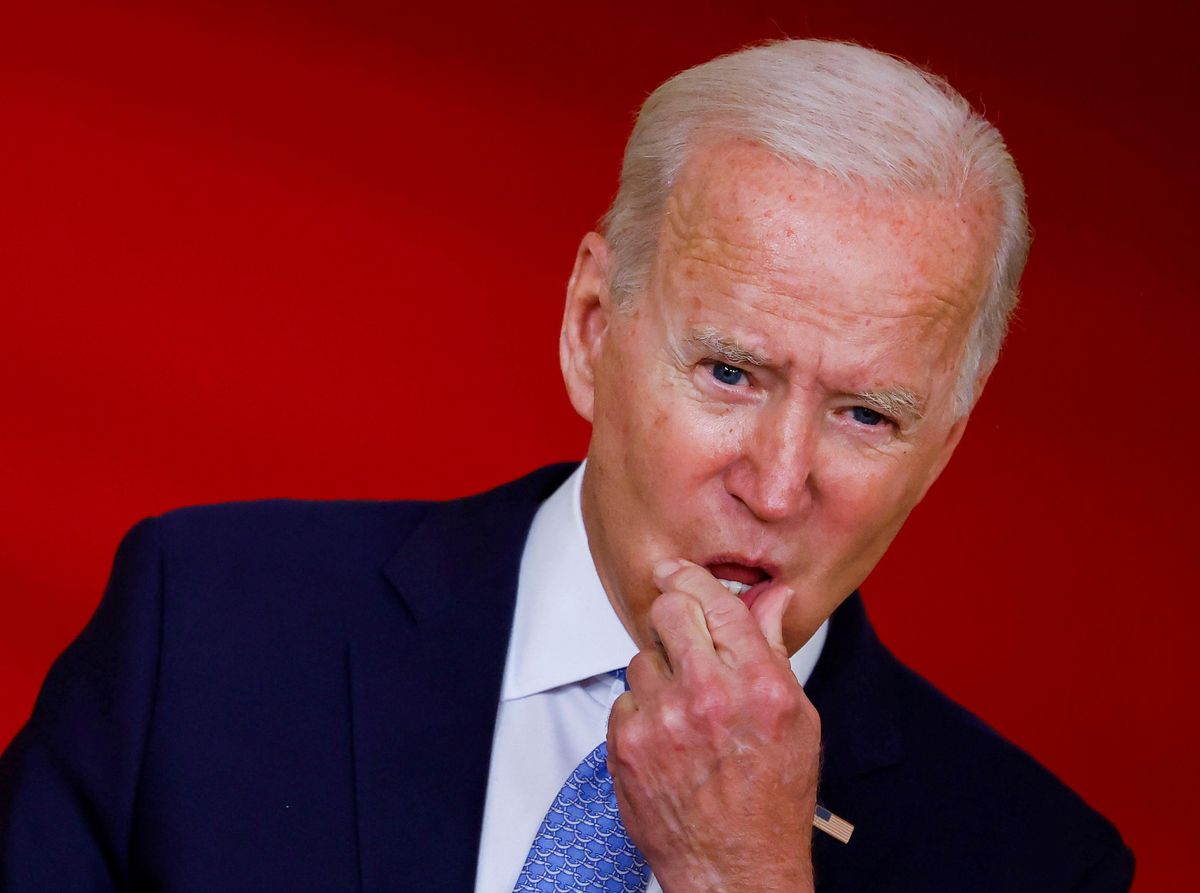Joe Biden’s first year as US president included two major historic accomplishments and a series of (often bitter) disappointments that has his party headed toward likely defeat in November’s midterm elections. Biden’s own political future is increasingly uncertain.
A caveat: presidents are never judged fairly. Credit is given and blame assigned for events and circumstances well beyond their control. But the policy and political consequences of their perceived successes and failures are real. They matter for both the future direction of the country they lead and the political fortunes of their parties.
Falling numbers
Begin with voters. By historical standards, Biden entered office with modest popularity. He opened at about 55 percent in composites of various surveys and steadily fell to a current level below 42 percent. It’s a downward spiral that leaves him barely more popular than Donald Trump was after his first year in office.
A new poll shows that just 28 percent of respondents would like Biden to run for re-election in 2024, a number that suggests that, unlike Trump, Biden is hemorrhaging support from within his own party.
Accomplishments
Few Republicans and a falling number of Biden’s fellow Democrats credit him for the two major accomplishments of his presidency: a $1.9 trillion pandemic relief package, which passed Congress in March, and a bipartisan $1.2 trillion infrastructure bill that became law in November. These investments stand with the largest legislative achievements of the Franklin Roosevelt and Lyndon Johnson administrations, both of which benefited from much larger congressional majorities than Biden is ever likely to have.
Failures
The list of Biden’s perceived failures is much longer. After promising in July that Americans were “closer than ever to declaring our independence” from COVID, the nation now faces a third wave of coronavirus infections. Biden has greatly expanded the availability of COVID tests and vaccines — and he can’t be blamed for Republican aversion to vaccines and masks — but there’s little question he overpromised on an end to the pandemic.
The US economy has posted strong growth numbers, unemployment has fallen sharply since the pandemic’s early days, and US stock indexes reached record highs in December. But a variety of foreseeable factors have produced the highest inflation numbers since the 1980s, a problem that will further disrupt supply chains, cost consumers, and dampen expectations for continued growth.
On immigration policy, the Biden White House was startlingly unprepared for the surge of migrants that was sure to arrive with the end of the “tough on immigration” Trump presidency and periods of pandemic easing.
On foreign policy, Iran’s new hardline government has so far balked at Biden’s invitation to rejoin the Iran nuclear deal. The chaotic withdrawal from Afghanistan left US soldiers dead and American friends behind.
Tests ahead
The most immediate test ahead comes from the Kremlin. Vladimir Putin has ordered more than enough troops to Russia’s border with Ukraine to pose a credible threat of military aggression. He has demanded guarantees from NATO that would redesign the security architecture of Europe.
During a Wednesday press conference, Biden warned that Russia would pay a “stiff price” following a Russian invasion of Ukraine. He can back up that threat with unusually harsh sanctions and US-made weapons to Ukrainian troops.
But he also said that a “minor incursion” by Russia would leave NATO members “to fight about what to do and not do.” Ukraine’s government was appalled, and the White House was forced to issue a clarification. Biden has since done some damage control.
But Biden’s greatest political failure has been his inability to lead haggling factions within the Democratic Party toward compromises that might have brought more of the investment and reforms that he and members of his party have promised for years.
Central to the Democratic Party’s message to Americans is that government can (and should) do big things to strengthen the nation and its people. When Democrats hold the White House and both houses of Congress, their voters expect them to deliver on promises to strengthen the social safety net, reform immigration policy, protect voting rights, and expand individual liberties for Americans who have historically faced various forms of discrimination.
When the leader of the Democratic Party, with Democratic majorities in Congress, fails to rally his own lawmakers toward the political deals needed to advance the party’s goals, he’s failing in his most important job — and giving voters fewer reasons to support him or his party when they next go to the polls.






